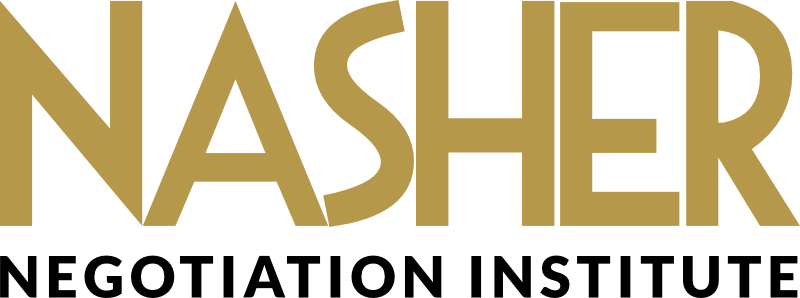Deep understanding of the other person’s position is crucial to your negotiation success. Excellent negotiators therefore ask questions and follow up to make sure they have understood the other person’s negotiating position. The more information you have, the better you can pursue your goals and understand and influence those of your counterpart — so the right way of conducting the conversation is crucial!
The right way to talk
 When we are in our Negotiation training ask a participant to stand up, stretch his palms forward and press against it, what happens? Correct, he presses against it. Because pressure leads to Counterpressure, just like Resistance statements lead.
When we are in our Negotiation training ask a participant to stand up, stretch his palms forward and press against it, what happens? Correct, he presses against it. Because pressure leads to Counterpressure, just like Resistance statements lead.
Instead of saying “You’re too expensive,” say “Why are you so expensive?” and you won’t get a snotty defensive response, but valuable information. In negotiations, therefore, replace as many statements as possible with questions — because questions lead to answers.
Ask correctly
For a optimal interviewing prepare a list of questions to get the information relevant to you in the particular negotiation. Ask open questions, because the more open, the more information you get: “Why exactly do you think the house is worth € 700 000?” — “Why do you think we should raise your salary again?”
Questions related to “What if …” start, provide you with especially valuable information for the negotiation. Imagine you’re at Media Markt negotiating for a TV: “What if I took three?” — “What if I picked it up myself and waived delivery?” — “What if I added a DVD player?” Even if you don’t intend any of these things, this will tell you what negotiating leverage your negotiating opponent has.
Be persistent
For a optimal interviewing should make asking a habit. If your counterpart says, “We never negotiate on price.” Don’t throw in the towel, but immediately ask, “Then what can we negotiate about? About the delivery date, the equipment, the payment method?” Often the relevant information hidden, for example here: “At the moment, I am unfortunately not available for this.” And you should ask further: “Who is available for this?” Or, “Then what are you available for?” You hear: “Unfortunately, I can’t do anything about that,” and immediately ask: “Who can do what?”
If someone calls you an “idiot,” your response should be, “Why do you think I’m an idiot?” You want to know what is going on with your negotiation opponent and sincerely ask them to learn more — this means a good conversational skills and negotiate successfully.
At NASHER Seminar learn the optimal way to conduct a conversation: how to ask the right questions at the right moment and obtain the information that will give you the decisive Advantage bring! Here it goes to the Registration.
© industryview — Fotolia.com
If you liked this tip, share it with your friends and acquaintances on your favorite network.
